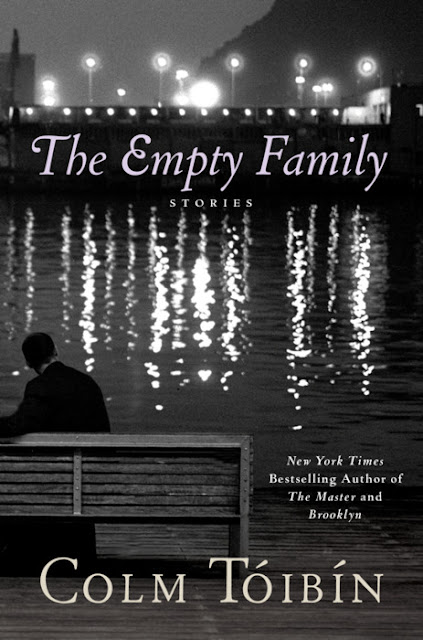
I cannot decide which dust jacket I like better on Colm Tóibín's new volume of stories, the American one (above) or the British one (below). Each invites many arguments in its favor and after The Empty Family has been read to the end, they both seem expressive and right. The title story, especially, is all ocean, perhaps even intended partly as a tribute to The Waves by Virginia Woolf, whose echoes I seemed to hear.

Sometimes when a book is over it is unbearable to lose the author's voice, and to cope with that feeling in this case I went back and reread an earlier Tóibín novel called The Blackwater Lightship where a brooding sea can be thought of as a major character. It came out in 1999, and I remember at the time thinking that it felt truer-to-life and warmer-hearted than any other description of the AIDS crisis.
 from The Empty Family:
from The Empty Family:I knew he wanted me to move the telescope, to focus now on Rosslare Harbour, on Tuskar Rock, on Raven Point, on the strand at Curracloe, agree with him that they could be seen so clearly even in this faded evening light. But what he showed me first had amazed me. The sight of the waves miles out, their dutiful and frenetic solitude, their dull indifference to their fate, made me want to cry out, made me want to ask him if he could leave me alone for some time to take this in. I could hear him breathing behind me. It came to me then that the sea is not a pattern, it is a struggle. Nothing matters against the fact of this. The waves were like people battling out there, full of consciousness and will and destiny and an abiding sense of their own beauty.
